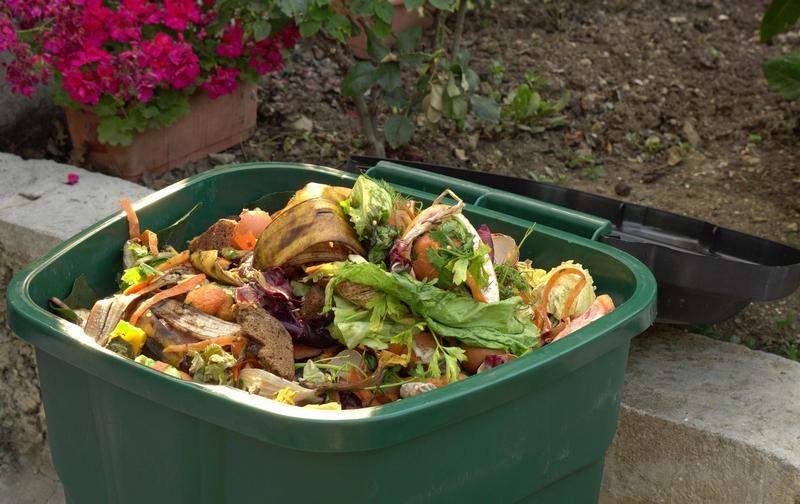This page has been automatically translated. Please refer to the page in French if needed.
Selective Sorting
From 1 Jan. 2024
Source sorting of bio-waste: how will it be implemented from 1 January 2024?
Publié le 30 novembre 2023 - Mise à jour le 22 décembre 2023 - Directorate for Legal and Administrative Information (Prime Minister)
Door-to-door collection, specialized kiosks... From 1er in january 2024, local and regional authorities are required to introduce source-based segregation of bio-waste for individuals as part of the public waste management service. This follows the European Waste Framework Directive and the Act on Waste Prevention and the Circular Economy (AGEC). Service-Public.fr provides an update on the implementation of this mechanism.

Bonus repair, repairability index, printing of the receipt on demand, removal of plastic packaging for certain fruits and vegetables, end of disposable dishes in fast-foods... since 2020, all these measures put in place under the AGEC law of 10 February 2020, and in accordance with European law, are part of the daily life of households.
Other measures are planned from 2024, including the sorting of bio-waste at source by communities as part of the public waste management service.
This obligation shall take effect from 1er January 2024. It will result in the implementation, at community level, of local management solutions and/or separate collection of bio-waste for individuals. A green fund set up by the State is intended to support the implementation of sorting solutions by local authorities.
The generalization of sorting at source concerns all waste producers in France (local authorities, administrations, professionals).
FYI
one third of the content of the French household rubbish bins consists of food waste, i.e. 83 kg of residual waste per inhabitant/year.
Reminder
since 2012, sorting at source has already applied to professionals producing large quantities of waste, according to production thresholds. At 1er in january 2024, the measure is generalized to all professional actors without a minimum threshold.
What is the source sorting of bio-waste?
The AGEC Act makes it compulsory for communities to sort bio-waste at source so that it can be recovered.
Each community is free to define the organization that suits it best: door-to-door collection or voluntary point collection, proposal of individual composters for those who wish to do so, establishment of neighborhood composters or building footings. The sorting solutions are multiple, often mixed, and depend on each territory, its typology and the waste management scheme of the community in charge of this public service.
Your community needs to inform you about how to implement the sorting collection.
Please note
to understand how food waste sorting will work, you can visit the instructions for use proposed by the Ecological Transition Agency (ADEME) or the FAQ proposed by the Ministry of Energy Transition.
Reminder
"bio-waste" means fermentable organic waste
- food waste or ‘catering waste’: catering waste such as leftover meals, preparations (peelings) or unconsumed expired products from households, restaurants, caterers, etc.
- waste from the maintenance of parks and gardens or ‘green waste’: grass clippings, dead leaves, shrub pruning, hedges and twigs, etc.
Why segregate bio-waste at source?
To reduce the carbon footprint of the waste sector
Bio-waste is composed of 80% water. Incinerating them is unnecessarily energy-consuming. Landfills generate methane, a gas with a global warming potential 25 times greater than that of CO2.
Sorting them to make the most of them offers only advantages.
By sorting bio-waste, more than 800,000 tons of greenhouse gases are avoided.
To produce renewable energy
By harnessing bio-waste, we can expand the production of biogas, a renewable energy necessary for decarbonization. Biogas can be used in different ways:
- as fuel for electricity and heat production;
- purified to biomethane and used as fuel;
- injected into the natural gas system.
For the resilience of agricultural models
Replacing synthetic fertilizer inputs with organic fertilizers from bio-waste (e.g. compost) has important environmental benefits. Soil revitalization can thus be carried out with the help of renewable resources available on the territory.
Additional topics
Service-Public.fr
Service-Public.fr
Service-Public.fr
Ecological Transition Agency (Ademe)
Ministry of the Environment
Agenda
Jusqu'au 2 avr. 2025
Orientation
Publié le 14 mars 2025
Jusqu'au 31 mars 2025
Expulsions locatives
Publié le 28 octobre 2024

